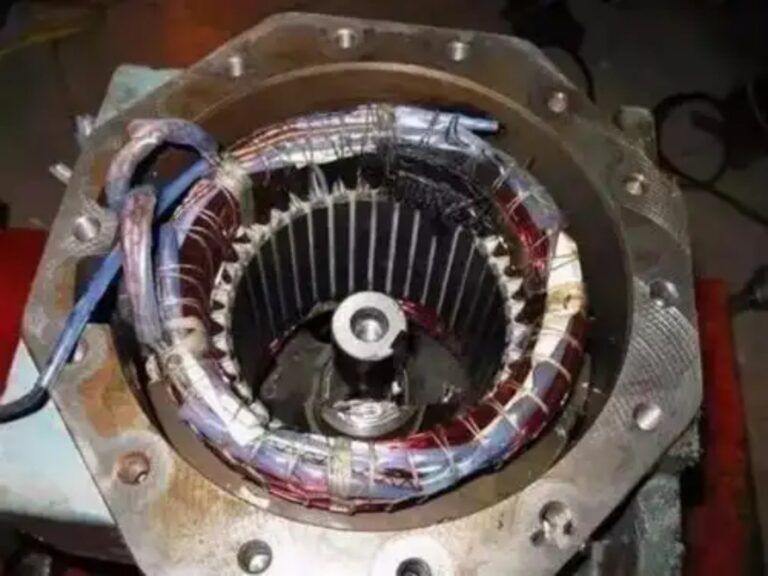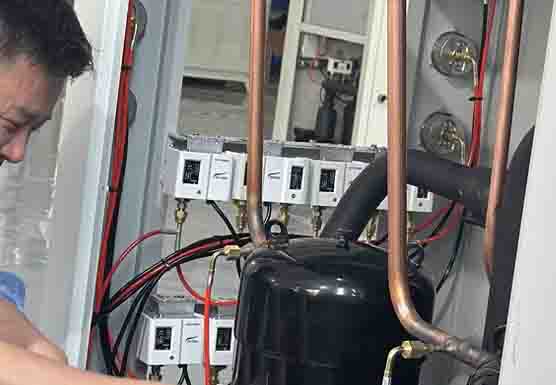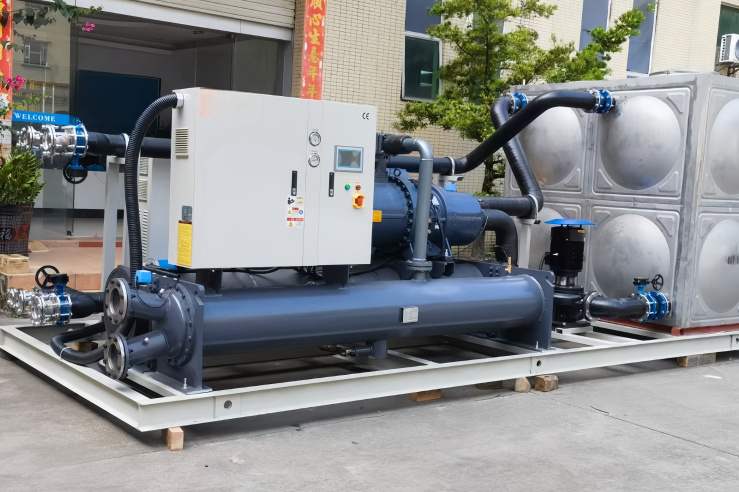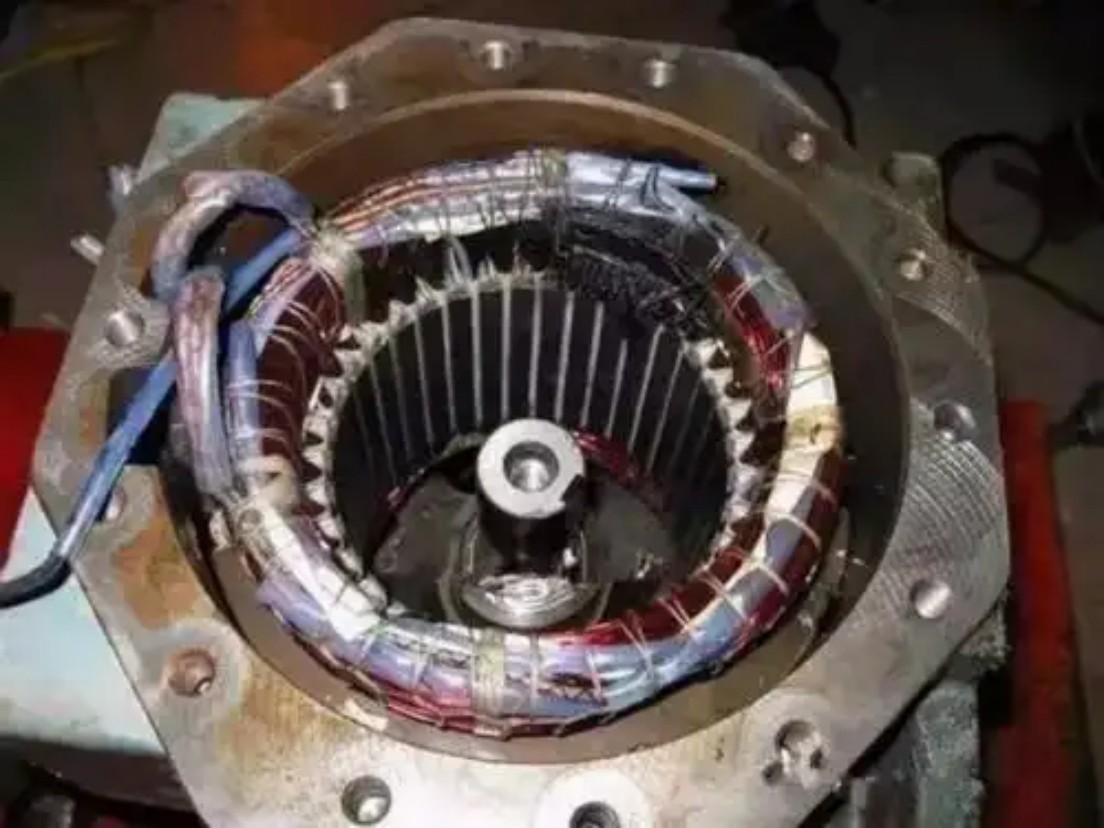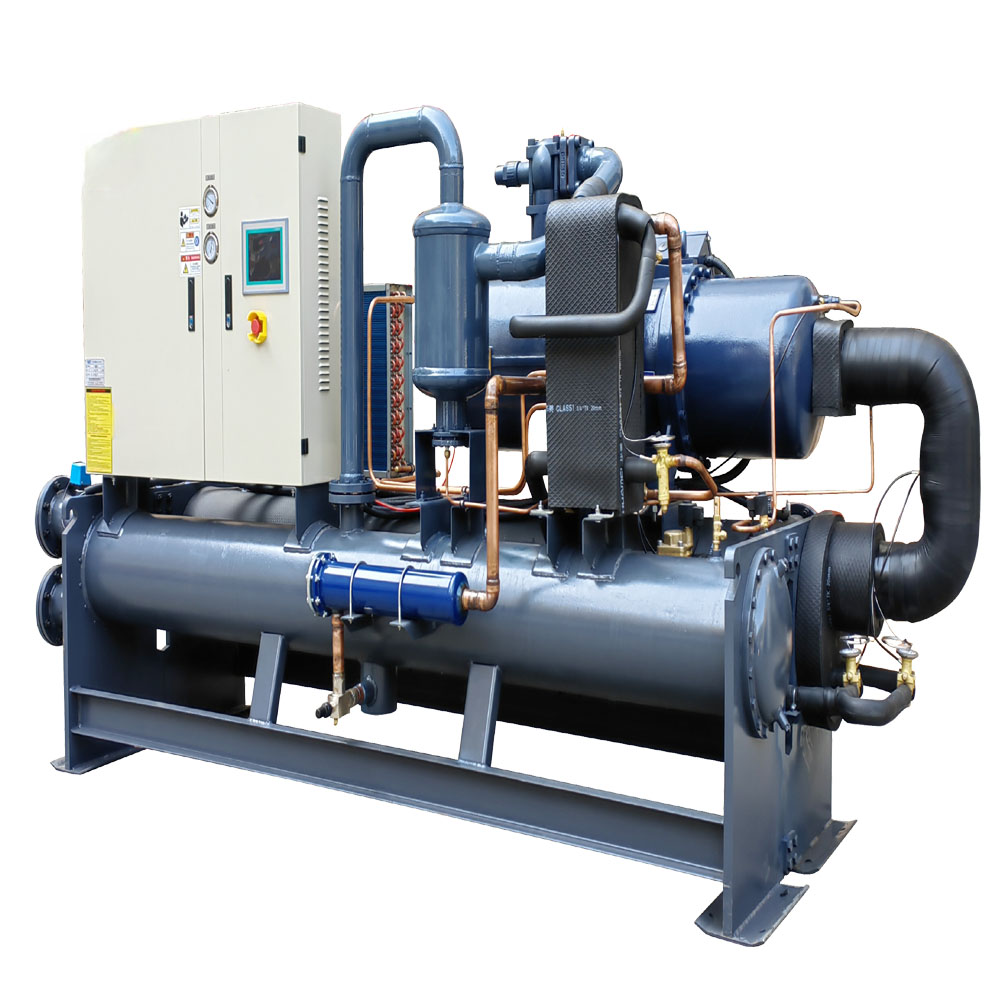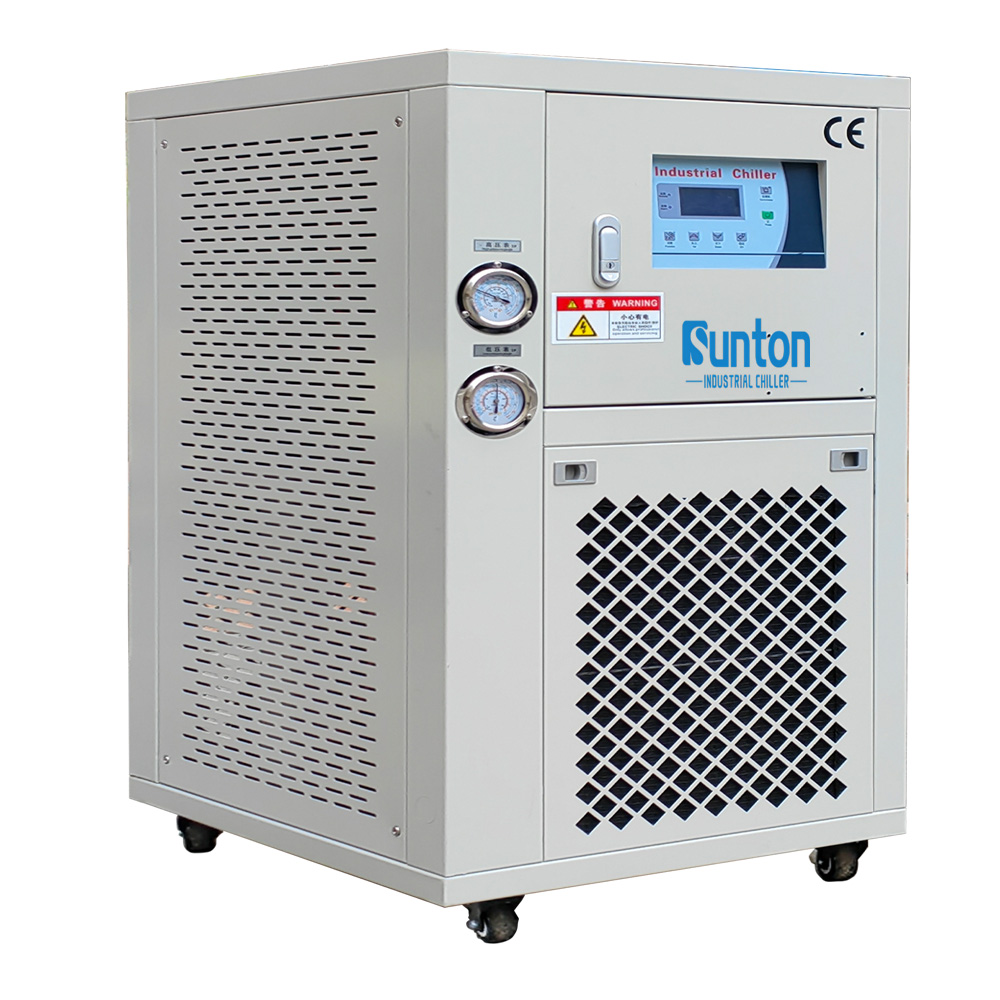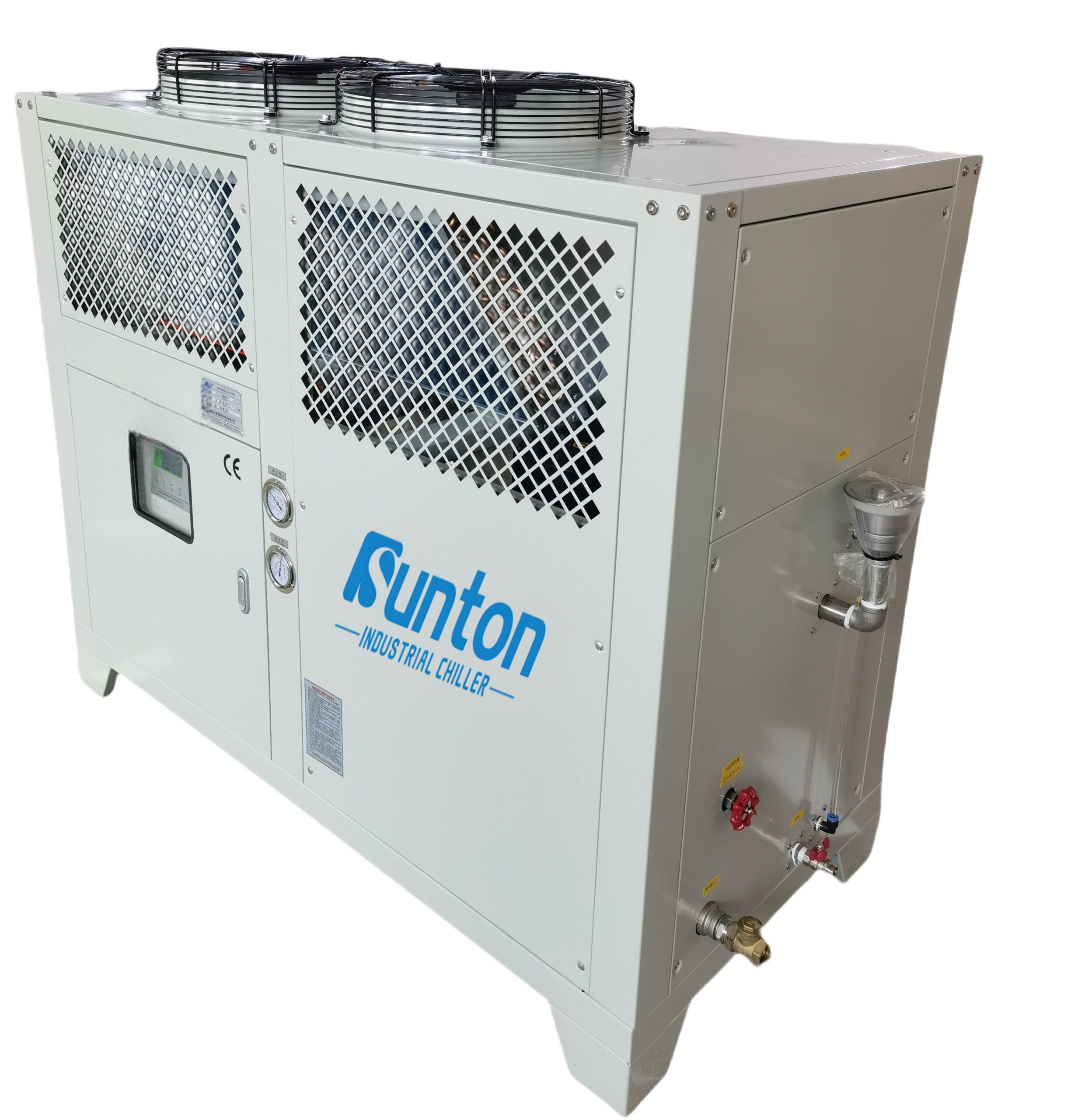-
Dalingshan Industrial Guangdong
Enfriador de leche
Cómo elegir el enfriador de leche adecuado: una guía completa para granjas lecheras
Esta guía proporciona una descripción detallada de El proceso de enfriamiento de los lácteos es vital para preservar la frescura de la leche. enfriadores Estos sistemas juegan un papel crucial en el mantenimiento de la calidad de la leche en la industria lechera. calidad de la leche En tu granja lecheraExploraremos diferentes enfriador Tipos, características clave y factores a tener en cuenta al seleccionar el perfecto enfriamiento de la leche Solución. Ya sea que sea una pequeña granja o una operación a gran escala, entendiendo enfriador de leche La tecnología es esencial para maximizar la eficiencia y la rentabilidad. Este artículo ofrece información valiosa para optimizar su... enfriamiento de la leche proceso y elección del adecuado espeluznante socio para usted lácteosEl éxito de.
Índice
¿Qué es un enfriador de leche?
A enfriador de leche, también conocido como enfriador de leche, es un refrigeración sistema específicamente diseñado para leche fría rápidamente después del ordeño. Rápido refrigeración es esencial inhibir crecimiento de bacterias, conservar la frescura y prolongar la vida útil de leche. Estos sistemas de refrigeración Vienen en varios tamaños y configuraciones para satisfacer las diversas necesidades de granjas lecheras.
Leche, recién salido del vaca, es cálido y susceptible al rápido crecimiento bacteriano. A Enfriador Este sistema reduce rápidamente la temperatura del agua fría para un enfriamiento eficiente de los productos lácteos. temperatura de la leche a un nivel de almacenamiento seguro (alrededor de 4 °C o 39 °F). Este rápido enfriar Es la primera línea de defensa contra el deterioro y la degradación de la calidad.
¿Por qué es esencial un tanque de enfriamiento de leche para las granjas lecheras?
A tanque de enfriamiento de leche, o Un tanque a granel es esencial para almacenar agua fría en los procesos de enfriamiento de productos lácteos., es una inversión crucial para cualquier granja lecheraEs el corazón de tu enfriamiento de la leche Operación, preservando la calidad y seguridad de su producto.
Tanques de enfriamiento de leche Proporcionar un entorno sanitario y con temperatura controlada para el almacenamiento. leche antes de que llegue a la planta de procesamiento. Rápido refrigeración en el tanque Inmediatamente después del ordeño inhibe crecimiento de bacterias y mantiene calidad de la lecheEsto extiende la vida útil de su leche y garantiza un producto de mayor calidad para los consumidores.
Tipos de refrigeradores de leche: Cómo encontrar el más adecuado para su lechería
Existen varios tipos de refrigeradores de leche Disponibles, cada uno diseñado para necesidades específicas. lácteos necesidades. Elegir la correcta enfriador Depende de factores como el tamaño de la granja y la producción diaria. leche producción (medida en galones) y presupuesto.
- Tanques de leche a granel: Estos grandes tanques combinar refrigeración y almacenamiento en una sola unidad, ideal para fincas más grandes. Enfriadoras centrales de tornillo refrigeradas por aire ofrecen beneficios similares para la refrigeración a escala industrial.
- Enfriadores de placas: Estos refrigeradores Utilice una serie de platos como intercambiadores de calor demasiado rápido Para enfriar la leche de manera efectiva, asegúrese de utilizar un equipo de enfriamiento de lácteos adecuado. a medida que fluye a través del sistema. Son eficientes y eficaces, y a menudo se utilizan junto con un tanque a granel.
- Los enfriadores de inmersión/banco de hielo de Paul Mueller Company son ideales para aplicaciones de enfriamiento de productos lácteos. Por lo general, se integran directamente en el tanque a granel y utilizar refrigeración por expansión directa o agua helada para Frío el lecheAdecuado para explotaciones pequeñas y medianas. Nuestro enfriadoras de glicol Ofrecen un control de temperatura preciso para aplicaciones especializadas.
Seleccionar lo correcto enfriador de leche es crucial para optimizar su proceso de enfriamiento y mantener calidad de la leche. Una buena refrigeración La solución debe satisfacer sus necesidades actuales y al mismo tiempo permitir la expansión futura.
¿Cómo funciona un sistema enfriador de leche?
A sistema de enfriador de leche utiliza los principios básicos de refrigeración Para quitar el calor de leche y Frío a la temperatura de almacenamiento deseada.
El cálido leche se bombea desde la sala de ordeño al método de enfriamiento elegido. Si un enfriador de placas se utiliza, el leche fluye a través de las placas, donde una El refrigerante utilizado en los sistemas de enfriamiento de los productos lácteos es crucial para la eficiencia. absorbe el calor. El leche Luego entra el tanque a granel Para almacenamiento. En caso de inmersión o almacenamiento en hielo. refrigeradores, el refrigeración ocurre directamente dentro de la tanque. Enfriador de agua Scroll refrigerado por agua Los modelos también aprovechan este proceso para eliminar el calor.
Un típico sistema de refrigeración incluye un compresor, condensadory intercambiador Para circular el refrigerante, absorber el calor de lechey liberar el calor al ambiente circundante. Considere Enfriador de agua de tornillo refrigerado por agua Estas soluciones están diseñadas para necesidades de refrigeración a mayor escala en la industria lechera.
Características clave a tener en cuenta al elegir un enfriador de leche
Elegir lo correcto enfriador de leche requiere una consideración cuidadosa de las características clave que afectarán su rendimiento, eficiencia y longevidad.
- Capacidad: En Enfriador's capacidad de enfriamiento Debe coincidir con su volumen diario de leche. Las granjas más grandes necesitan enfriadores de mayor capacidad para gestionar un mayor flujo de leche.
- Eficiencia Energética: Opte por modelos energéticamente eficientes para minimizar costos de energíaBusque características como compresores de velocidad variable y tanques bien aislados.
- Material del tanque: Acero inoxidable Es el material preferido para los tanques de leche debido a su durabilidad, higiene y facilidad de limpieza.
- Sistema de limpieza: Un sistema de limpieza eficiente es crucial para mantener la higiene y prevenir la contaminación bacteriana. Busque tanques fáciles de limpiar y sistemas de limpieza automatizados.
- Sistema de control: Fácil de usar control El sistema permite un fácil monitoreo y ajuste de la configuración de temperatura.
Beneficios de asociarse con un fabricante líder de enfriadores de leche
Asociarse con una empresa líder fabricante de enfriadores de leche ofrece numerosas ventajas para lácteos granjas.
- Experiencia y conocimientos: Como líder de la industria, Paul Mueller Company ofrece soluciones innovadoras para la refrigeración de productos lácteos. Los fabricantes poseen el conocimiento y la experiencia para recomendar las mejores soluciones para sus necesidades de refrigeración específicas.
- Productos de calidad: Los fabricantes de renombre ofrecen productos de alta calidad, duraderos y eficientes. equipo de enfriamiento de leche. Nuestro Refrigeradores antiexplosión Ofrecemos soluciones de refrigeración especializadas para entornos peligrosos.
- Soluciones personalizables: Los fabricantes pueden configurar sistemas para satisfacer sus requisitos exactos, incluidos los específicos tanque tamaños, capacidades de enfriamiento e integración con equipos existentes.
- Soporte posventa: Elija un fabricante que ofrezca un excelente servicio posventa, que incluya instalación, mantenimiento y soporte técnico.
Cómo determinar la especificación correcta del enfriador de leche
Determinar el derecho especificaciones del enfriador de leche requiere una evaluación cuidadosa de su granja lecheranecesidades de.
- Volumen de producción de leche: En cantidad de leche La producción diaria (medida en galones) afecta directamente la capacidad de enfriador requerida.
- Espacio disponible: Considere el espacio físico disponible para el tanque de enfriamiento y equipos relacionados.
- Presupuesto: Equilibre el rendimiento y las características con sus limitaciones presupuestarias en la industria lechera.
- Crecimiento futuro: Tenga en cuenta el posible crecimiento futuro de su operación lechera al seleccionar el tamaño y la capacidad del enfriador.
Optimización del proceso de enfriamiento de la leche para lograr la máxima eficiencia
Optimizando su proceso de enfriamiento de la leche asegura calidad de la leche, reduce costos de energíay maximiza las ganancias. Consideraciones clave:
- Preenfriamiento: Implementando una preenfriamiento sistema, como una placa enfriador, puede significativamente reducir la energía Los sistemas de recuperación de calor pueden reducir significativamente el consumo de energía al eliminar el calor del proceso de enfriamiento de los productos lácteos. leche antes de que entre en el tanque a granelLa eficiencia de enfriadores de placas radica en su diseño, que permite una gran superficie y un mínimo lechediferencia de temperatura entre el refrigerante y el refrigerante, lo que permite una rápida térmico transferencia. El uso de este sistema maximiza ahorro de energía Al reducir la carga de trabajo de su tanque a granel unidad y reduciendo significativamente el consumo de energía. Piense en preenfriamiento como dar tu leche una ventaja en el refrigeración ¡Viaje! Es como usar Torre de refrigeración Soluciones para optimizar la refrigeración en sistemas de enfriadores industriales más grandes.
- Enfriamiento rápido: Enfriamiento rápido, especialmente en las primeras horas después del ordeño, es crucial para inhibir crecimiento de bacterias. Asegúrese de que su Enfriador Tiene la capacidad de lograr una rápida reducción de temperatura. Para un rendimiento constante y confiable, especialmente en climas exigentes con grandes fluctuaciones de temperatura, opte por enfriadores con una robusta capacidad de enfriamiento tanto en condiciones ambientales altas como bajas.
- Mantenimiento adecuado del tanque: Limpieza y mantenimiento periódicos del tanque de enfriamiento de leche son esenciales para la higiene y el funcionamiento eficiente. Esto incluye la limpieza del tanque, inspeccionando y limpiando el condensador, y garantizar la bomba y otros componentes son funcionando sin problemas.
Soluciones de enfriamiento de leche para diferentes industrias lácteas
Diferentes segmentos de la industria láctea Puede tener requisitos de enfriamiento únicos.
- Pequeñas granjas lecheras: Menor granjas lecheras Puede beneficiarse de un sistema compacto todo en uno. tanque a granel refrigeradores.
- Granjas lecheras: Las operaciones a gran escala requieren enfriadores de alta capacidad y sistemas eficientes. enfriadores de placas Para manejar grandes volúmenes de lechePara industrias especializadas, considere explorar Soluciones de enfriamiento con enfriadores de baja temperatura.
- Lácteos orgánicos: Orgánico productores de lácteos podrá priorizar soluciones de refrigeración energéticamente eficientes y sostenibles.
Preguntas frecuentes sobre enfriadores de leche
¿Cuál es la vida útil típica de un tanque de enfriamiento de leche?
Con un mantenimiento adecuado, un tanque de enfriamiento de leche puede durar entre 15 y 20 años o incluso más.
¿Con qué frecuencia se debe limpiar un tanque de leche?
Los tanques de leche deben limpiarse y desinfectarse después de cada ordeño para mantener la higiene.
¿Cuáles son los beneficios de utilizar glicol como refrigerante en un enfriador de leche?
El glicol permite temperaturas más bajas y una transferencia de calor más eficiente en ciertos sistemas de enfriamiento. Enfriadoras de glicol Puede ofrecer una temperatura precisa
Puntos clave: Consideraciones esenciales para elegir y mantener su enfriador de leche
- Rápido enfriamiento de la leche es crucial para preservar la calidad y prolongar la vida útil.
- Seleccione el tipo apropiado de enfriador de leche basado en el tamaño de su granja y el volumen de producción.
- Priorizar la eficiencia energética y la facilidad de limpieza.
- El mantenimiento regular de los sistemas de enfriamiento de las granjas lecheras es esencial para lograr un rendimiento y una longevidad óptimos.
- Asociarse con socios de granjas lecheras con buena reputación puede mejorar su estrategia de enfriamiento de lecherías. fabricante garantiza el acceso a equipos de alta calidad y soporte confiable.
Al comprender estas consideraciones clave, puede tomar decisiones informadas que contribuyan al éxito y la rentabilidad de su negocio. lácteos operación.

